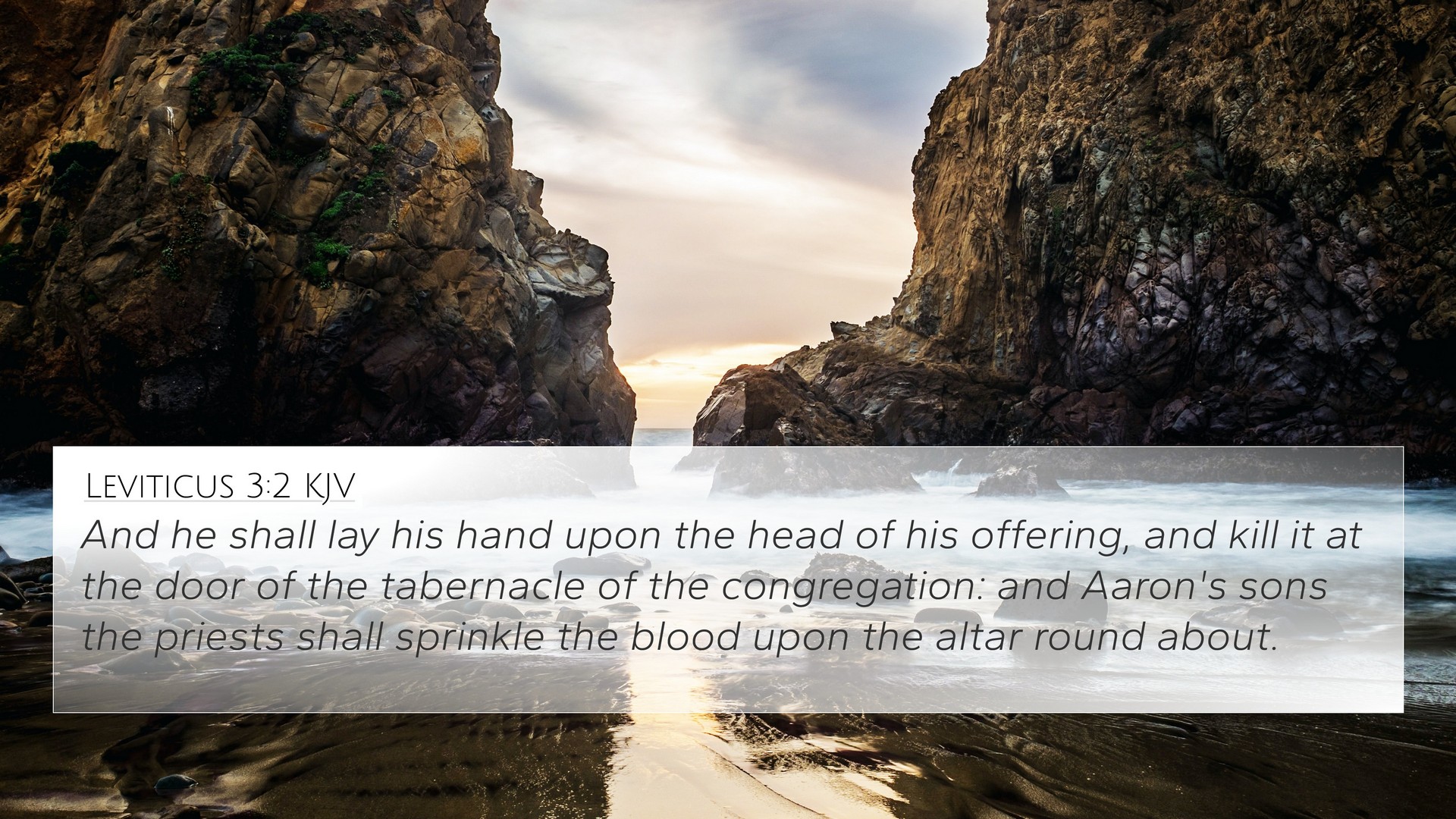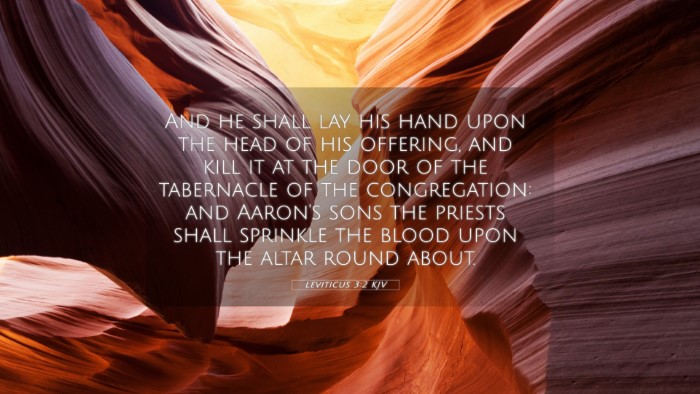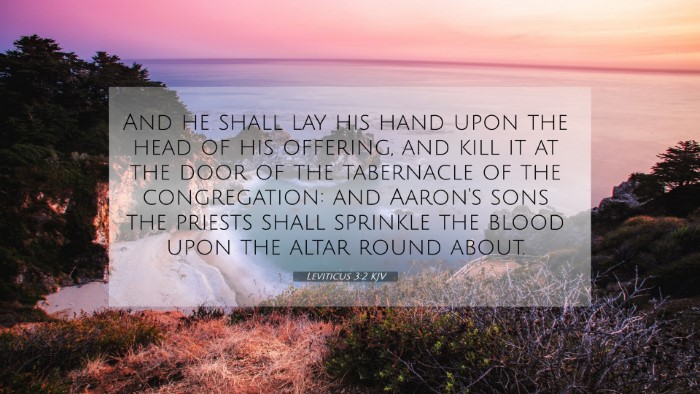This section features a detailed cross-reference designed to enrich your understanding of the Scriptures.
Below, you will find carefully selected verses that echo the themes and teachings related to Leviticus 3:2 KJV. Click on any image to explore detailed analyses of related Bible verses and uncover deeper theological insights.
 Exodus 29:10 (KJV) »
Exodus 29:10 (KJV) »
And thou shalt cause a bullock to be brought before the tabernacle of the congregation: and Aaron and his sons shall put their hands upon the head of the bullock.
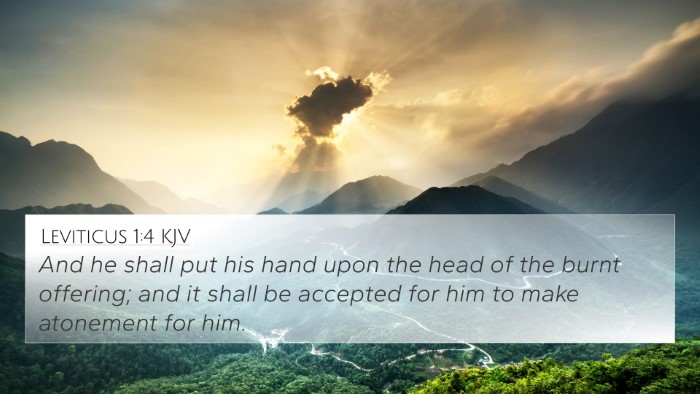 Leviticus 1:4 (KJV) »
Leviticus 1:4 (KJV) »
And he shall put his hand upon the head of the burnt offering; and it shall be accepted for him to make atonement for him.
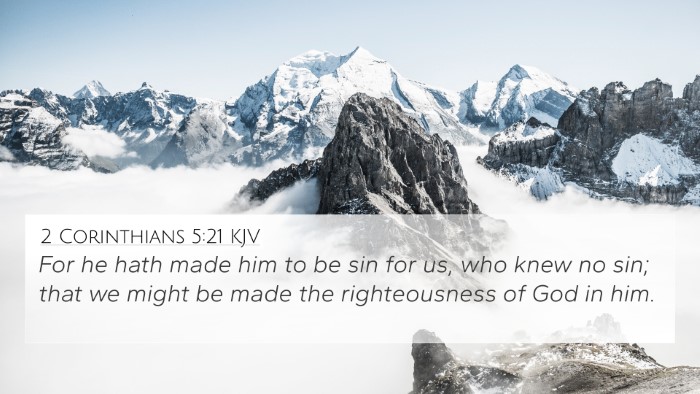 2 Corinthians 5:21 (KJV) »
2 Corinthians 5:21 (KJV) »
For he hath made him to be sin for us, who knew no sin; that we might be made the righteousness of God in him.
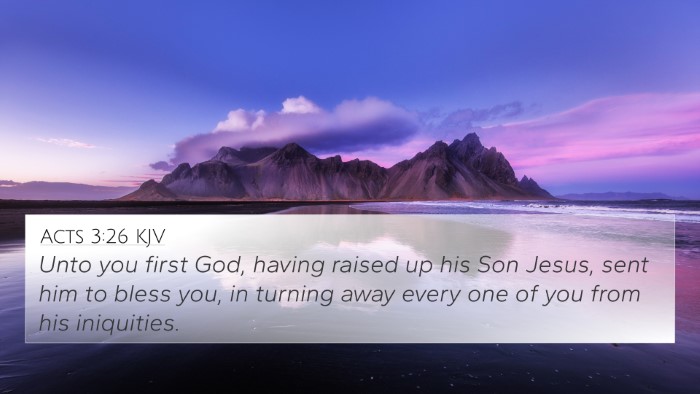 Acts 3:26 (KJV) »
Acts 3:26 (KJV) »
Unto you first God, having raised up his Son Jesus, sent him to bless you, in turning away every one of you from his iniquities.
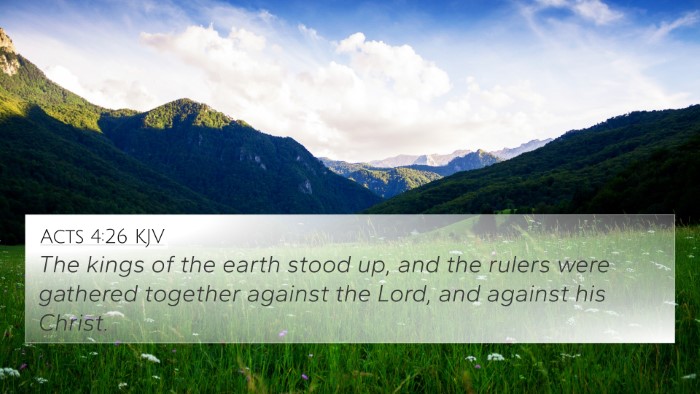 Acts 4:26 (KJV) »
Acts 4:26 (KJV) »
The kings of the earth stood up, and the rulers were gathered together against the Lord, and against his Christ.
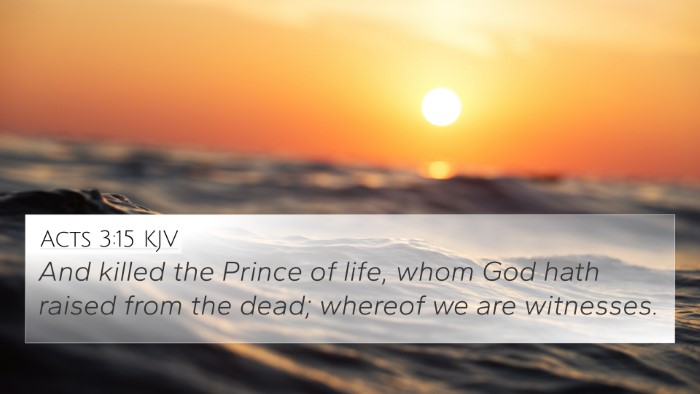 Acts 3:15 (KJV) »
Acts 3:15 (KJV) »
And killed the Prince of life, whom God hath raised from the dead; whereof we are witnesses.
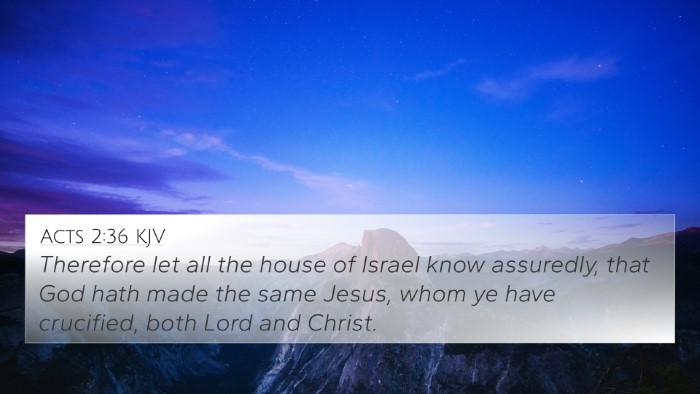 Acts 2:36 (KJV) »
Acts 2:36 (KJV) »
Therefore let all the house of Israel know assuredly, that God hath made the same Jesus, whom ye have crucified, both Lord and Christ.
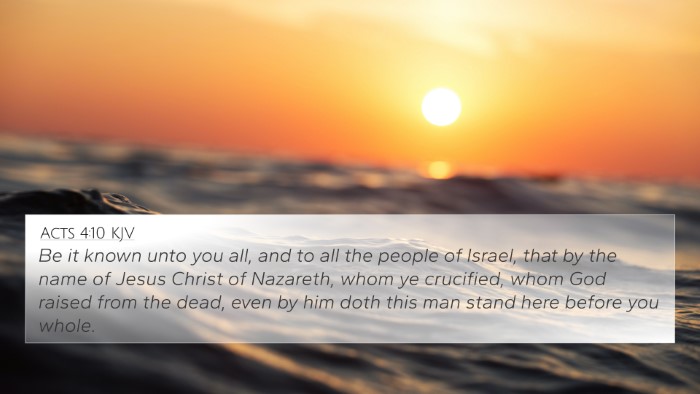 Acts 4:10 (KJV) »
Acts 4:10 (KJV) »
Be it known unto you all, and to all the people of Israel, that by the name of Jesus Christ of Nazareth, whom ye crucified, whom God raised from the dead, even by him doth this man stand here before you whole.
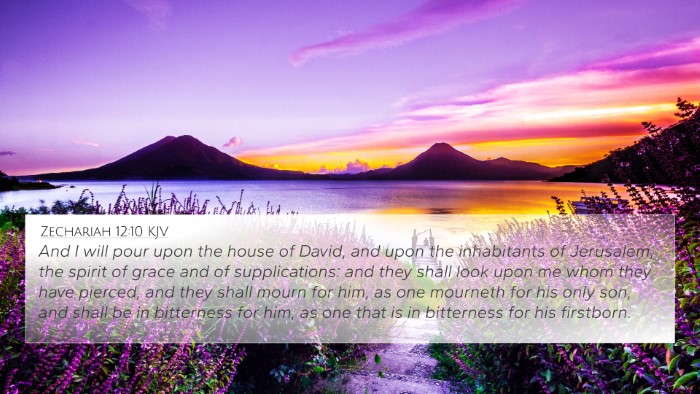 Zechariah 12:10 (KJV) »
Zechariah 12:10 (KJV) »
And I will pour upon the house of David, and upon the inhabitants of Jerusalem, the spirit of grace and of supplications: and they shall look upon me whom they have pierced, and they shall mourn for him, as one mourneth for his only son, and shall be in bitterness for him, as one that is in bitterness for his firstborn.
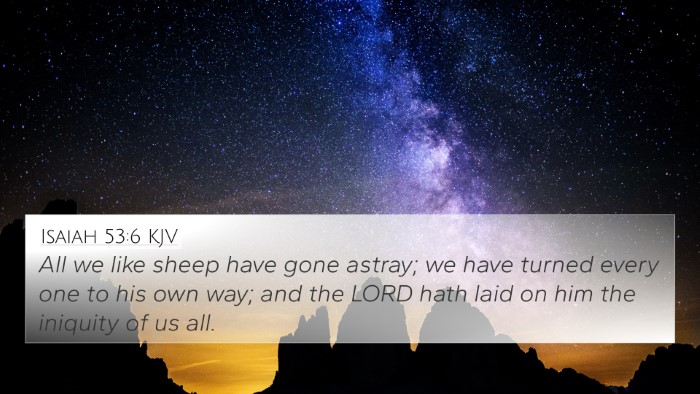 Isaiah 53:6 (KJV) »
Isaiah 53:6 (KJV) »
All we like sheep have gone astray; we have turned every one to his own way; and the LORD hath laid on him the iniquity of us all.
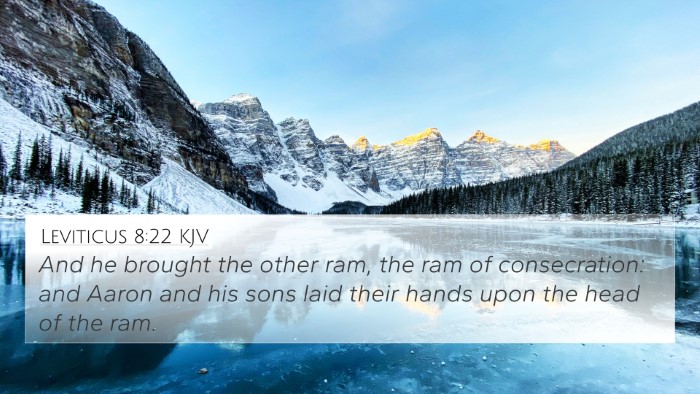 Leviticus 8:22 (KJV) »
Leviticus 8:22 (KJV) »
And he brought the other ram, the ram of consecration: and Aaron and his sons laid their hands upon the head of the ram.
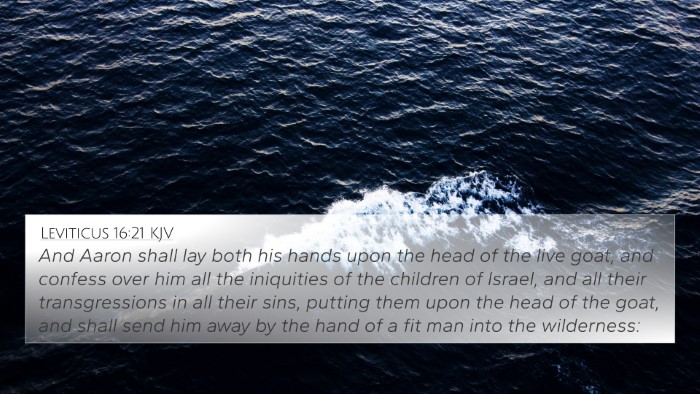 Leviticus 16:21 (KJV) »
Leviticus 16:21 (KJV) »
And Aaron shall lay both his hands upon the head of the live goat, and confess over him all the iniquities of the children of Israel, and all their transgressions in all their sins, putting them upon the head of the goat, and shall send him away by the hand of a fit man into the wilderness:
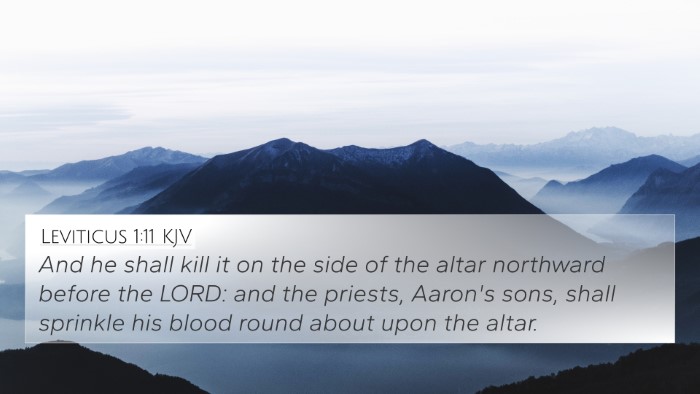 Leviticus 1:11 (KJV) »
Leviticus 1:11 (KJV) »
And he shall kill it on the side of the altar northward before the LORD: and the priests, Aaron's sons, shall sprinkle his blood round about upon the altar.
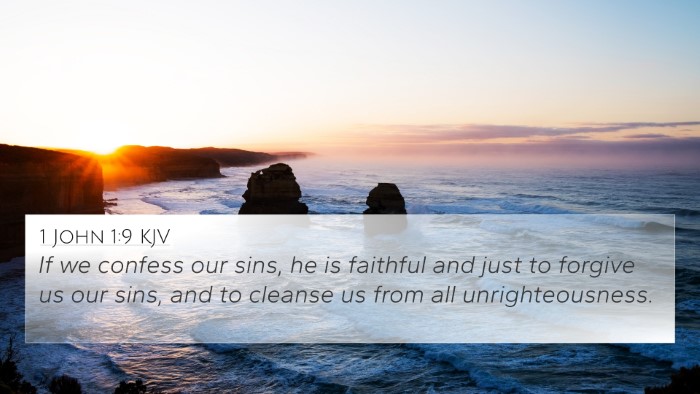 1 John 1:9 (KJV) »
1 John 1:9 (KJV) »
If we confess our sins, he is faithful and just to forgive us our sins, and to cleanse us from all unrighteousness.
